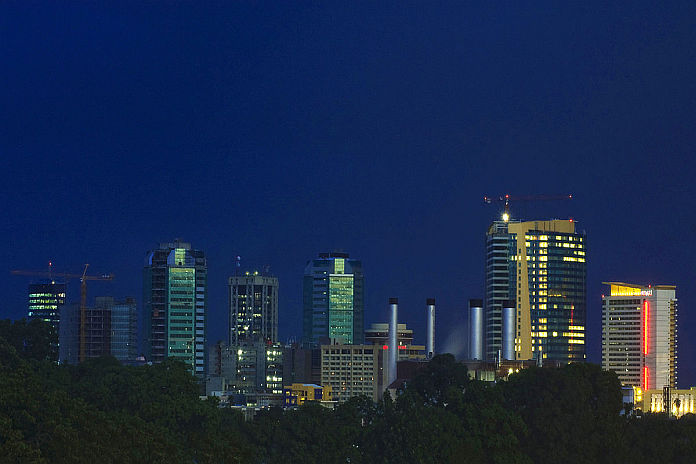Dear Sir
The Trinidad and Tobago economy contracted in 2016, 2017, and 2018. While there are no official CSO GDP figures for 2019, it is likely there was no growth in that year, a view supported by the International Monetary Fund (IMF) and Standard & Poor’s (S&P).
We last had four consecutive years of economic contraction from 1986 to 1989. Before covid19, the outlook for 2020 was marked by falling natural gas production and low natural gas prices. As a result of COVID19, the IMF has revised its forecast for 2020 to -4.5 percent. If realised, the cumulative decline in real GDP for the period 2016 to 2020 would be an estimated -13 percent. To make matters worse, the IMF’s -4.5 percent may be conservative.
In the last 20 years, the statistical correlation between Trinidad and Tobago natural gas production and economic growth is 0.98. That means any economic growth realised in the last 20 years was due to growth in natural gas output.
Although natural gas will continue to form the foundation of the economy for the foreseeable future, it will not drive growth at least for the next five years. We must, therefore, find other economic activities that can drive growth.
The sharp decline in energy prices in 2014-2016 led to the lowest government revenue in the last ten years of $36.2 billion (2017) compared to the highest, $58.4 billion (2014). On March 26, the minister of finance suggested the fall in revenue in 2020 would be around $7 billion. On April 27, he said it would be $9.2 billion, with a deficit of around $15.5 billion.
I suggest that the shortfall in revenue will be in excess of $12 billion, with the deficit approaching $19 billion. If realised, the minister may be headed back to the Heritage and Stabilisation Fund or the debt market in short order. The Trinidad and Tobago government could also access the IMF’s Rapid Financing Instrument, as is being done by Jamaica.
The revenue shock is price-driven. The fall in oil and natural gas prices did not start in 2020 with COVID-19. Oil prices fell by 13 percent in 2019 vs 2018. US natural gas prices fell by 16 percent, European prices by 39 percent, and Asian prices by 45 percent. In March and again in April, the minister of finance rebased the budget on a natural gas price of $1.80 per MMBtu (the average well-head price realised in Trinidad and Tobago, not the Henry Hub price).
In the wider energy sector, the picture is not positive. Four plants in Point Lisas are closed at present. The most recent, Methanex’s Titan plant, closed because of significant increases in natural gas prices from NGC. Additionally, the refinery has now been closed for the last 16 months and each day that it stays closed, it becomes more expensive to restart.
In February, oil production was 55,685 barrels per day, the lowest production since the early 1950s. In the current circumstances, about 70-80 percent of energy revenue comes from natural gas, inclusive of NGC’s contribution to the treasury.
Natural gas is Trinidad and Tobago main breadwinner, but natural gas prices are also low. At the current prices, the industry is losing money. Norway’s Rystad says that at US$30 per barrel most oil and gas companies have zero free cash flow. That means most producers of oil and natural gas, including some large multinationals operating in Trinidad and Tobago, are losing money.
It is unlikely that lifestyles will return to the pre-pandemic arrangements. Business models will have to be reassessed. As happened in the 80s, some business houses in Trinidad and Tobago may fall. Trade unions will have to put their demands on ice. The changes made thus far demonstrate that we here in Trinidad and Tobago can shift some degree of the public- and private-sector work to “work from home” and likely get the same or better output.
Trinidad and Tobago is not beyond redemption. We must navigate this fog of uncertainty. Parochialism and hubris will lead to failure. Victory requires unity of purpose and leadership on a Rooseveltian scale.
Hard decisions that have been deferred for many years will soon have to be taken. There will be pain. There is no escaping that. We must tap into all resources, including our diaspora, the private sector, and academia. Trinidad and Tobago need to address the ease of doing business and the falling labor-force participation rate.
The government needs to exit certain sectors. We need a taxation regime that facilitates investment, not suffocating investment. We need to address energy efficiency in a big way.
We need to accelerate, not decelerate, towards the fourth industrial revolution. We need to address the supply side of our economy, particularly agriculture. We need to coordinate more closely with our Caricom partners.
We need a new moral consciousness founded on a shared vision of our future.
Kevin Ramnarine
Former Minister of Energy and Energy Affairs





